WenYong Wang
Privacy-Preserved Blockchain-Federated-Learning for Medical Image Analysis Towards Multiple Parties
Apr 22, 2021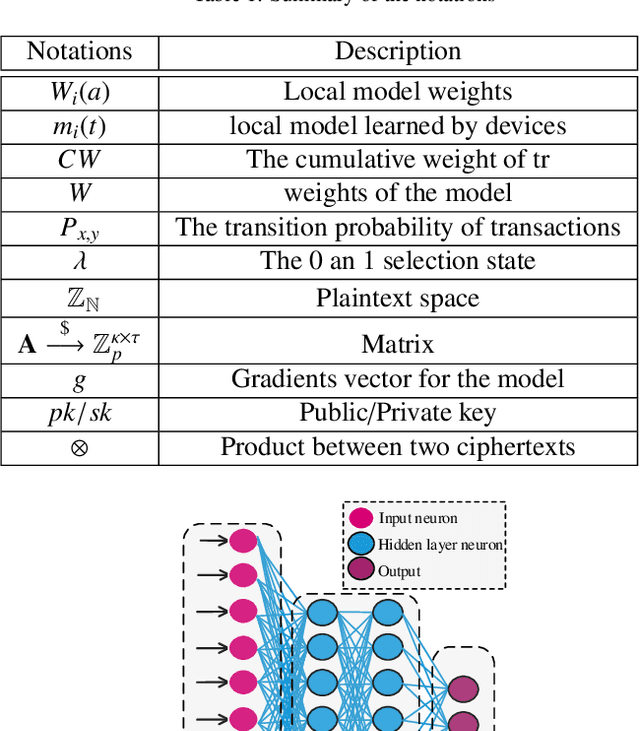
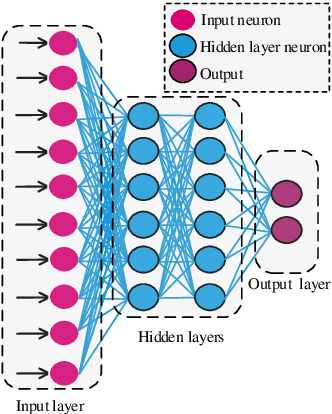
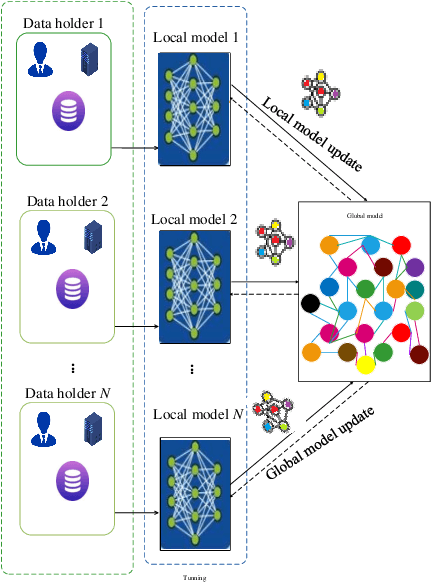
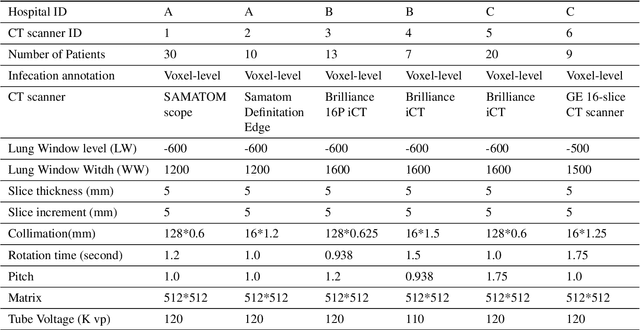
Abstract:To share the patient\textquoteright s data in the blockchain network can help to learn the accurate deep learning model for the better prediction of COVID-19 patients. However, privacy (e.g., data leakage) and security (e.g., reliability or trust of data) concerns are the main challenging task for the health care centers. To solve this challenging task, this article designs a privacy-preserving framework based on federated learning and blockchain. In the first step, we train the local model by using the capsule network for the segmentation and classification of the COVID-19 images. The segmentation aims to extract nodules and classification to train the model. In the second step, we secure the local model through the homomorphic encryption scheme. The designed scheme encrypts and decrypts the gradients for federated learning. Moreover, for the decentralization of the model, we design a blockchain-based federated learning algorithm that can aggregate the gradients and update the local model. In this way, the proposed encryption scheme achieves the data provider privacy, and blockchain guarantees the reliability of the shared data. The experiment results demonstrate the performance of the proposed scheme.
IoTMalware: Android IoT Malware Detection based on Deep Neural Network and Blockchain Technology
Feb 26, 2021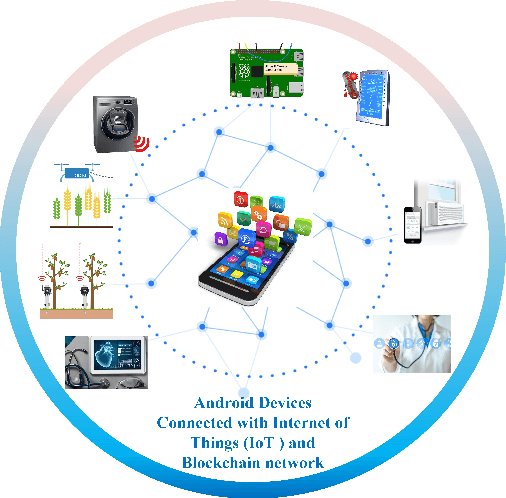
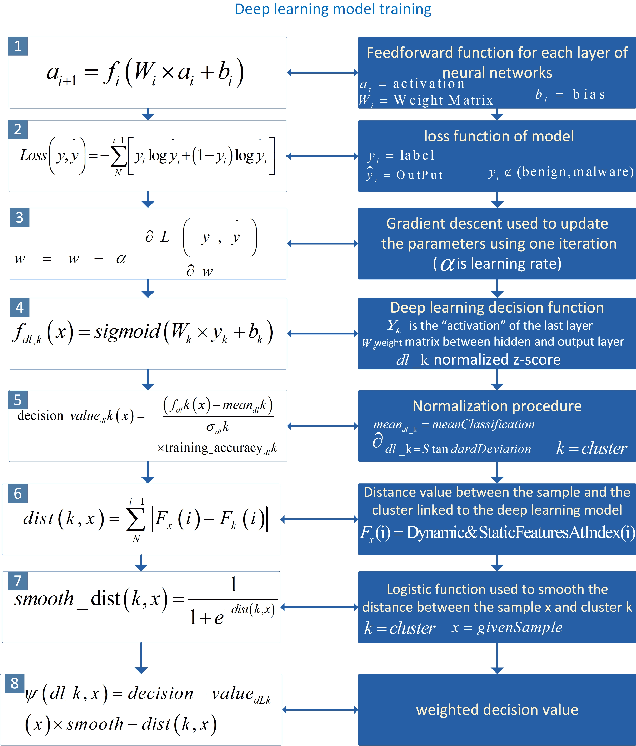
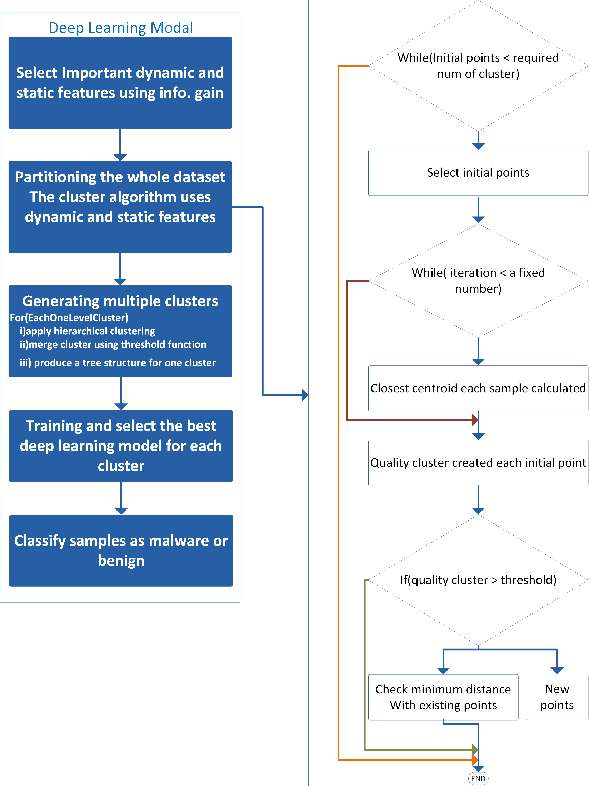
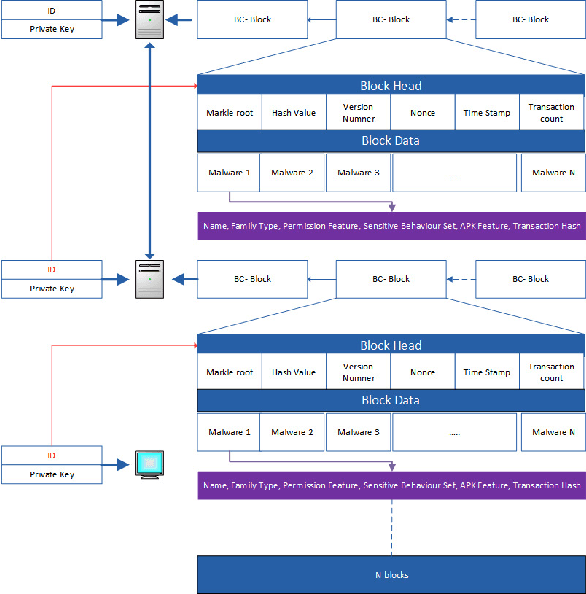
Abstract:The Internet of Things (IoT) has been revolutionizing this world by introducing exciting applications almost in all walks of daily life, such as healthcare, smart cities, smart environments, safety, remote sensing, and many more. This paper proposes a new framework based on the blockchain and deep learning model to provide more security for Android IoT devices. Moreover, our framework is capable to find the malware activities in a real-time environment. The proposed deep learning model analyzes various static and dynamic features extracted from thousands of feature of malware and benign apps that are already stored in blockchain distributed ledger. The multi-layer deep learning model makes decisions by analyzing the previous data and follow some steps. Firstly, it divides the malware feature into multiple level clusters. Secondly, it chooses a unique deep learning model for each malware feature set or cluster. Finally, it produces the decision by combining the results generated from all cluster levels. Furthermore, the decisions and multiple-level clustering data are stored in a blockchain that can be further used to train every specialized cluster for unique data distribution. Also, a customized smart contract is designed to detect deceptive applications through the blockchain framework. The smart contract verifies the malicious application both during the uploading and downloading process of Android apps on the network. Consequently, the proposed framework provides flexibility to features for run-time security regarding malware detection on heterogeneous IoT devices. Finally, the smart contract helps to approve or deny to uploading and downloading harmful Android applications.
Blockchain-Federated-Learning and Deep Learning Models for COVID-19 detection using CT Imaging
Jul 10, 2020
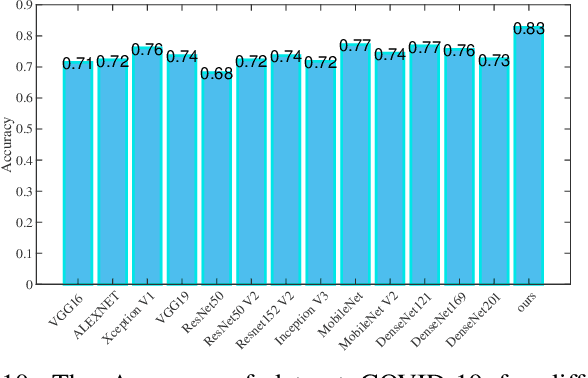
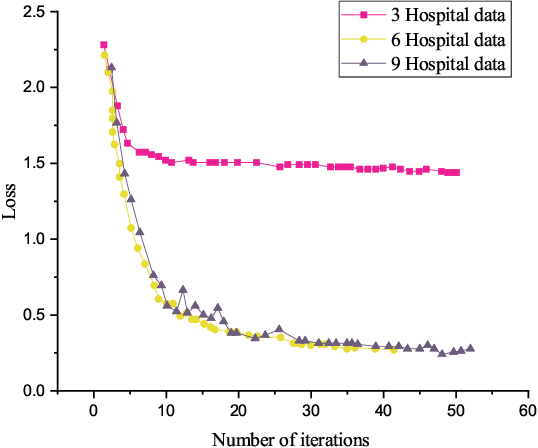

Abstract:With the increase of COVID-19 cases worldwide, an effective way is required to diagnose COVID-19 patients. The primary problem in diagnosing COVID-19 patients is the shortage of testing kits, due to the quick spread of the virus, medical practitioners are facing difficulty identifying the positive cases. The second real-world problem is to share the data among the hospitals globally while keeping in view the privacy concern of the organizations. To address the problem of building a collaborative network model without leakage privacy of data are major concerns for training the deep learning model, this paper proposes a framework that collects a huge amount of data from different sources (various hospitals) and to train the deep learning model over a decentralized network for the newest information about COVID-19 patients. The main goal of this paper is to improve the recognition of a global deep learning model using, novel and up-to-date data, and learn itself from such data to improve recognition of COVID-19 patients based on computed tomography (CT) slices. Moreover, the integration of blockchain and federated-learning technology collects the data from different hospitals without leakage the privacy of the data. Firstly, we collect real-life COVID-19 patients data open to the research community. Secondly, we use various deep learning models (VGG, DenseNet, AlexNet, MobileNet, ResNet, and Capsule Network) to recognize the patterns via COVID-19 patients' lung screening. Thirdly, securely share the data among various hospitals with the integration of federated learning and blockchain. Finally, our results demonstrate a better performance to detect COVID-19 patients.
 Add to Chrome
Add to Chrome Add to Firefox
Add to Firefox Add to Edge
Add to Edge